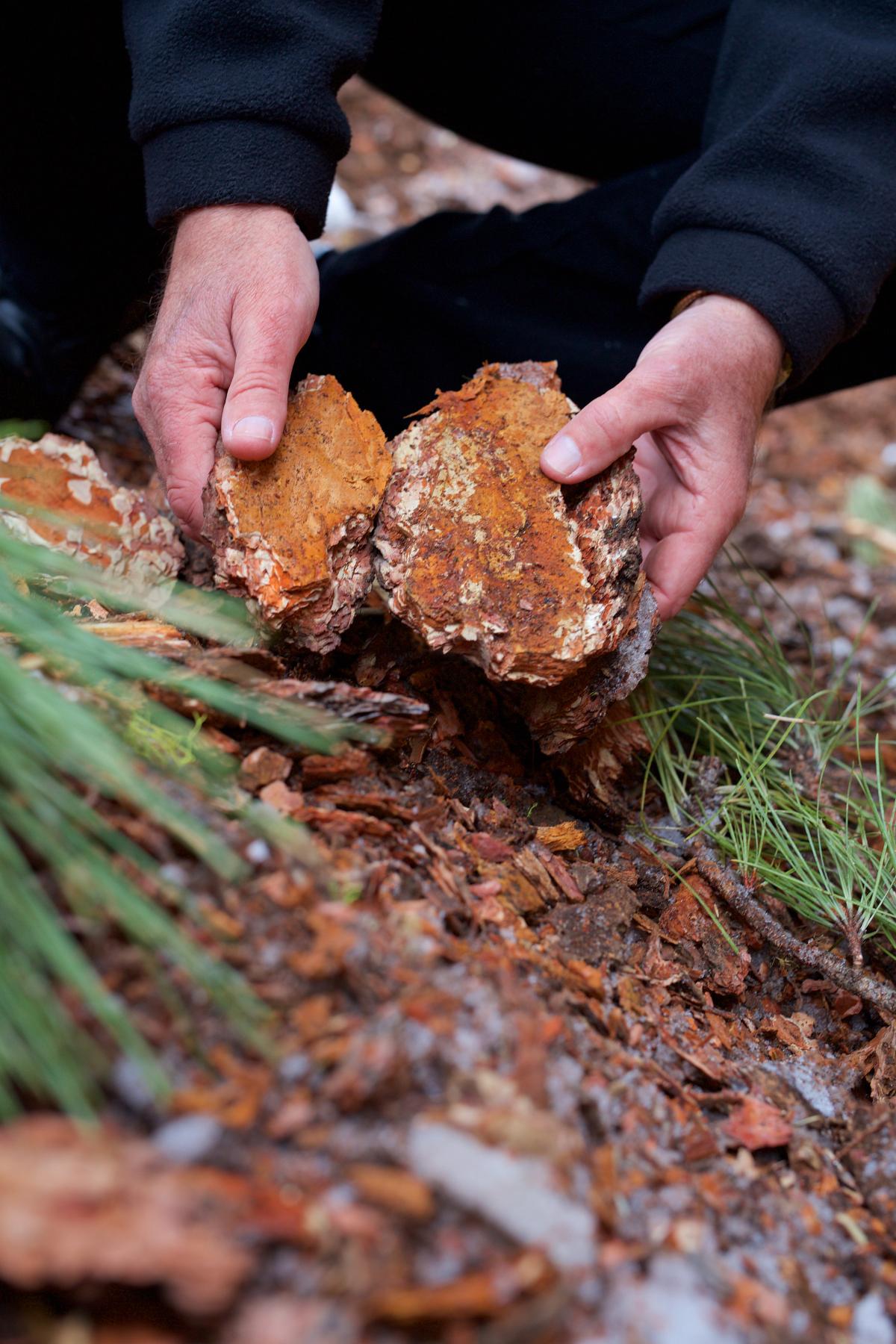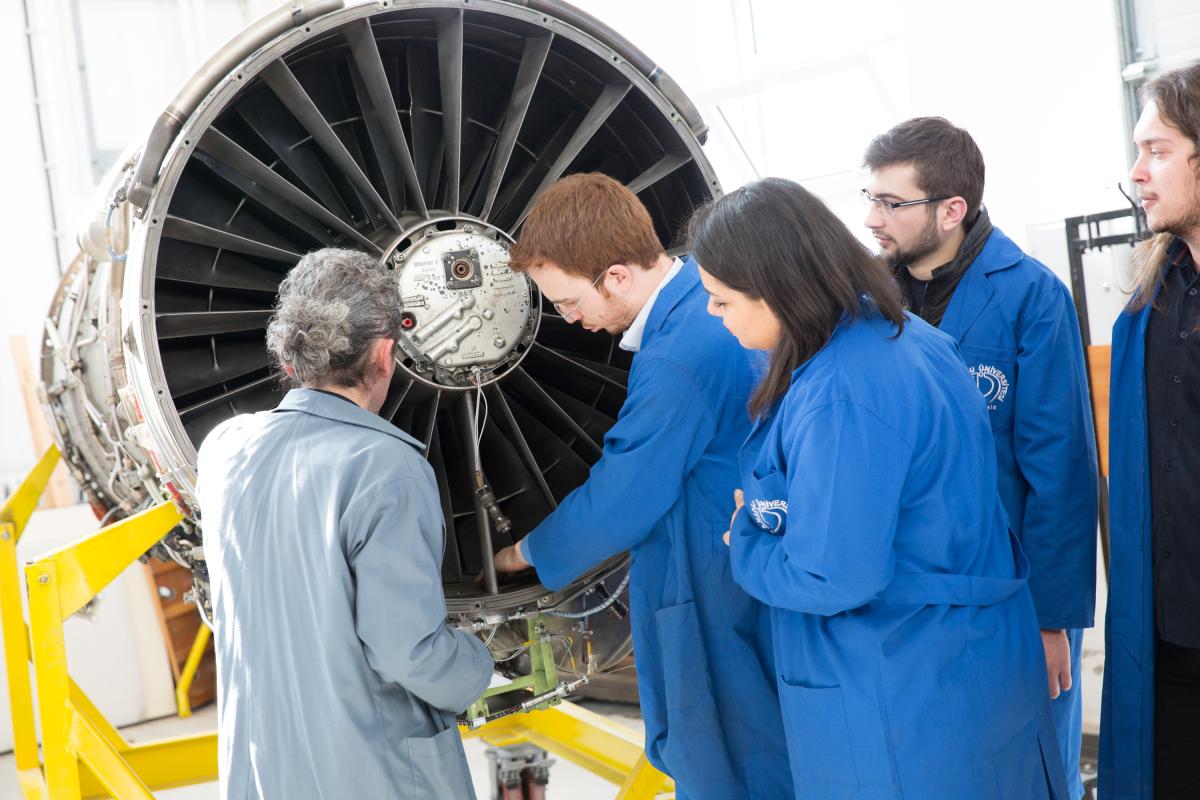What Does a Forester in Oregon Have in Common With Aircraft Mechanics Students in Turkey?
We are glad you asked!
What does a forester in Oregon have in common with aircraft mechanics students …
Dan Shoun, a Lake County, Oregon Commissioner, who spent 30-plus years with the USDA Forest Service, sees wood-based biofuel as a win-win model to curb wildfire risk, support communities and provide low-carbon fuel.
“Excess forest debris is a huge contributor to these catastrophic wildfires. It puts all forest activities at risk — timber, recreation, wildlife management, water use. In Lake County alone, we have around 400,000 acres of dead trees. In 2012, a 95,000-acre fire just outside Lakeview devastated our community. People lost their retirement investment when their land burned.
Thinning wood is very costly and the material had no value, no market. That’s why it’s a blessing that Red Rock Biofuels is now building a plant here to turn wood waste into jet fuel. Lake County is supporting them every way we can.
I’m a member of the presidentially-commissioned National Wildland Fire Leadership Council. One of our priorities is to make federal lands fire-resilient. This kind of collaboration between Red Rock and FedEx is absolutely the way forward. It gives federal agencies the best tool they’ve ever had to clear wood waste. And it’s bringing jobs that support families to Lake County.
Red Rock’s low-carbon biofuel will power planes based at the FedEx Express Oakland hub. The site prides itself on environmental leadership, according to Oakland Hub Director, Robin Van Galder.
“We’re an important regional hub. We have 1,700 employees and sort and distribute approximately 300,000 packages a day, with daily operations consisting of 35 aircraft and 160-170 trucks. It makes sense to test and implement cutting-edge things here that set standards for other FedEx locations and airlines.
When we launched our rooftop solar array in 2005, with almost 5,800 panels covering 75,000 square feet, it was the largest in California. Between solar and fuel cell installations, 47 percent of our energy comes from alternative sources.
We also participate in FedEx Fuel Sense campaigns to conserve fuel when we load and handle aircraft. For example, ground personnel are tasked with reducing engine time when aircraft are taxiing in and out, thus saving fuel. Getting aircraft gates cleared and personnel in place ensures this happens. We are able to provide team members instant feedback on how their actions have a real impact, and that generates buy-in and pride.
Many customers touring the site also want to see the solar panels and fuel cells. I’ve been with FedEx 32 years, and I look forward to work every day because we are making a difference.”
As FedEx Express modernizes its fleet, some older aircraft are donated. Giving these planes new life in ways that enrich communities is a vocation for David Sutton, Managing Director, Aircraft Acquisitions & Sales.
“Since 1995, we’ve donated 96 retired aircraft to organizations ranging from museums to airport fire departments and aircraft mechanic schools. It’s an environmentally friendly way of doing good, creating a second or third life for these planes as an educational resource. Some are still going at 60-plus years of age.
The planes are tremendous educational assets that create opportunities for hands-on learning experience. Airports and law enforcement agencies use them for safety and security training, including passenger evacuation and anti-terrorism simulations. In Kansas, we donated a “Learning Jet” for kindergarten through 12th graders.
These planes generate huge civic pride. Mayors, businesses, even congressmen turn out for their delivery and turn-over ceremonies. In 2014, I co-piloted a 727 donated to the aeronautics program at Anadolu University in Eskisehir, Turkey. Hundreds of people turned out — the reception left me ecstatic!
This program can really help change lives — especially for the next generation of aircraft mechanics. It’s a great way to fly the company flag, help communities and give back to the aviation industry.”
Ahmet Ikiz and Sema Avsar, undergraduates in the Faculty of Aeronautics and Astronautics at Anadolu University, Eskisehir, Turkey learn their craft inside the FedEx donated Boeing 727-200F.
Ahmet: “I’ve been interested in aviation since I was 14 and studied a lot to enter this school. We use the donated FedEx plane to learn aircraft maintenance. For example, we remove and install smoke detectors, sliding windows, lighting and over-wing doors. These lessons are very useful. In my opinion, there is no difference between our education and learning on an active aircraft.
"I’ve flown many times — it’s an incredible experience. My dream job would be to work for FedEx as an aircraft mechanic in the United States of America!”
Sema: “Studying at Anadolu University has changed my life. Living away from my family has been difficult, but it helps me to improve myself. I haven’t flown yet, but I love studying aeronautics. There are 22 students in my aircraft mechanics class, and we find it very useful to work on a real aircraft. We do lots of maintenance tasks and visual inspections.
"I thank FedEx for the support and opportunity.”




